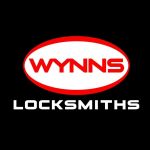MASTER CODE
The master code should be thought of as an access control to the safe. Master codes can be used to create and program user codes for the safe. For example; the store manager uses the master code to create a new user code for a recently hired employee. The member of staff can now use their user code to access the safe. Fastforward into the future and it’s now time for this employee to move to a new position elsewhere. The store manager uses the master code to remove that user’s code so that it can no longer access the safe.
LOCKBOX
A lockbox is basically a tough storage box with a lock. It’s designed to create a barrier for someone to easily grab an object. One major difference between a safe and lockbox is the thickness of the metal used. A lockbox will use a low gauge metal and can often be found in residential homes to store keys and cash.
FIRE RESISTANT
Fire resistant times can be used as a guide on how long the contents of the safe may be protected from a fire. A safe with a fire resistant rating of 30 mins has been designed to protect the contents of the safe for up to 30 minutes. You may notice UL (Underwriters Laboratory), PL (Private Laboratory), or ASNZS (Australian New Zealand Standards) noted as the testing authority.
CASH RATING
The cash rating is a guide on how much cash an insurance company should cover being stored in the stand alone safe. Cash ratings take into consideration the quantity and quality of the locks, along with the thickness of the safe walls.
If your safe is also protected by a security camera and alarm system your insurance company may cover you keeping more cash inside your safe. It’s a good idea to discuss your security needs with your insurance company as this can assist you with determining what level of cash rating you will require.
ANCHOR POINT
Anchor or bolt down are how many positions the safe has to be connected to the ground. These bolt down/anchor points are used to secure the safe to the ground. These offer a barrier to safe theft.
TDR
TDR stands for torch and drill resistant. These types of safes have been designed for premium protection against forced entry. A high level of security is provided with protection against torch attacks, drills, grinders, and explosive forces. TDR safes are generally found in banks, government sectors, and some commercial settings.
It’s imporant to consider what items you want to store in your safe as this will help in choosing a safe with the best features suited to your needs.
If you’re looking for a personal safe for your home you might want to read our previous post about the differences between safes and lockboxes. If you want to chat with our professional friendly staff about your security solutions please get in touch.



